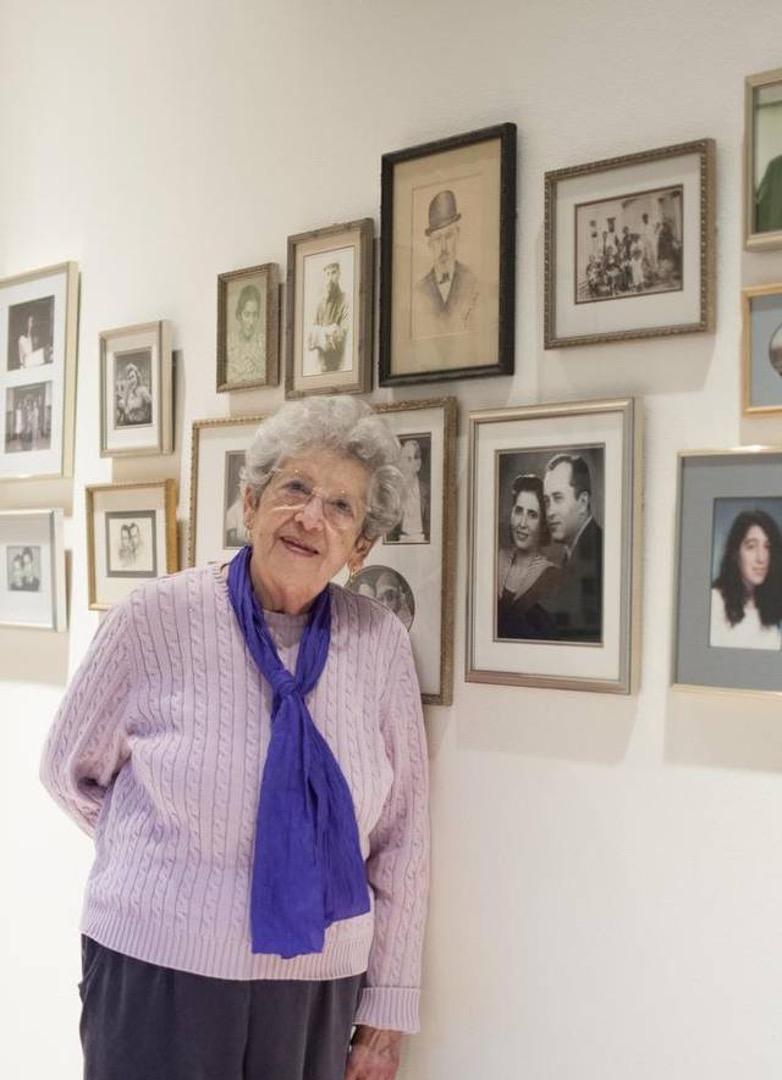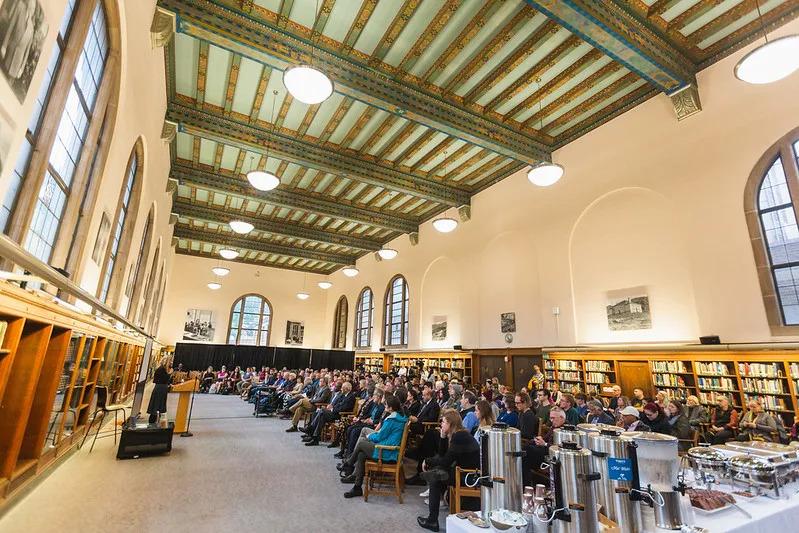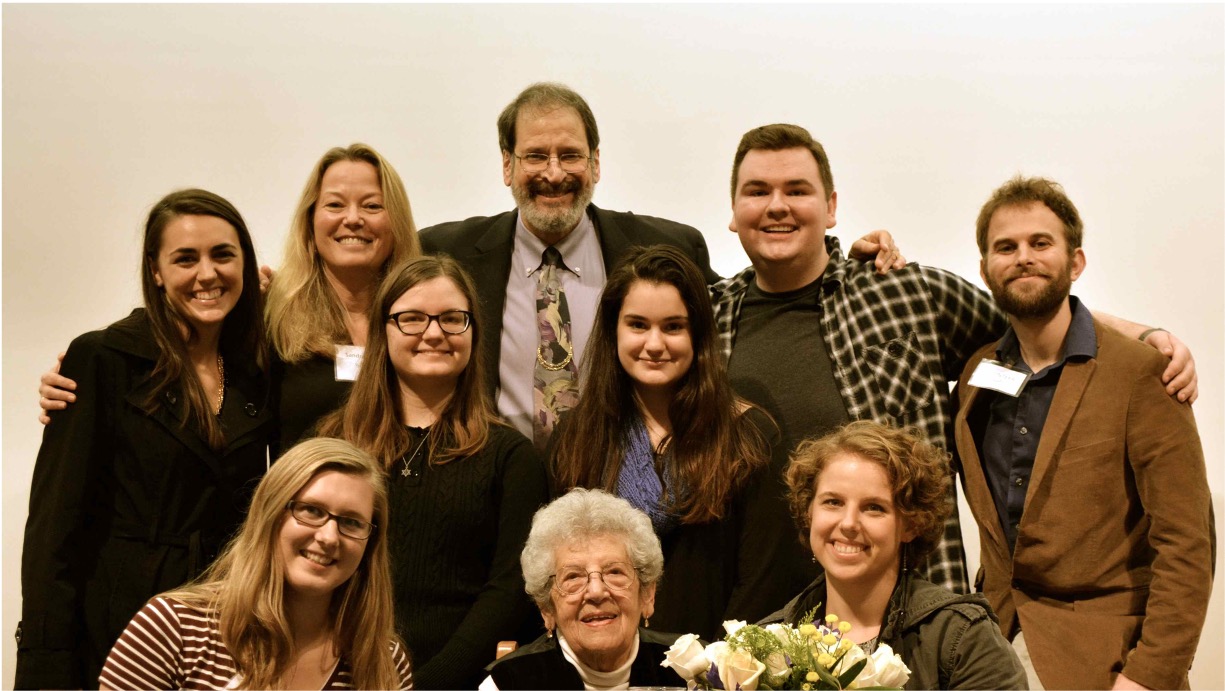Giving
Annual Noémi Ban Memorial Lecture
Local Holocaust survivor Noémi Ban (1922-2019) was a beloved teacher and award-winning educator. She cared deeply about the pursuit of historical truth, sharing her story of loss and survival with thousands of students around the state and the world.

At the Ray Wolpow Institute for the Study of the Holocaust, Genocide, and Crimes Against Humanity at Western Washington University we proudly carry on her legacy through our work with students as evidenced, for example, by our minor in Holocaust and Genocide Studies -- the first and only such program of study at a public university in the state of Washington.
Your impact:
To honor Noémi’s life and legacy, we are now seeking funds for the new Annual Noémi Ban Memorial Lecture and its associated learning programs.
Your contribution will allow us to showcase excellence and innovation in research through exceptional scholarly and educational events, thereby providing students and our on-/off-campus communities the opportunity to learn first-hand -- and in-person -- from top scholars in Holocaust & Genocide Studies.
Nothing compares to learning from visiting scholars directly. These personal encounters - be it formally in the classroom or informally during lunch - have the power to profoundly impact students’ learning as well as their motivation to seek further education on a given topic.
We will host speakers who captivate audiences through their innovative and rigorous academic work and instill in our students the quest to pursue academic studies in Holocaust and Genocide Studies.

Thank you for making a difference!
In coordination with internal and external organizations and universities across the United States, the Wolpow Institute already has an impressive record of free events but we simply do not have the funds to offer and plan these programs on our own. This is why we need your help in creating the Annual Noémi Ban Memorial Lecture and its associated learning programs. We want to carry forward Noémi's legacy as we educate a new generation of students who can distinguish fact from fiction as they work towards ensuring a democratic future. Throughout the month of May and during Give Day on Thursday, May 25, 2023 make a secure donation to the Ray Wolpow Institute (Ray Wolpow Institute Fund) either online or by contacting Dr. Sandra Alfers, the Wolpow Institute director, at alferss@wwu.edu or 360 650 7427, Dr. Babafemi Akinrinade, associate director, at akinrib@wwu.edu or 360 650 2893, or Hailey Rieman, at riemanh@wwu.edu administrative assistant, or 360 560 6190.

Other Areas of Focus
We strive to offer outstanding scholarly and educational programming for our university and the local, regional, national, and international communities it serves. As we continue to build the institute, we ask for your support – to design innovative courses for our students, develop study abroad opportunities, offer professional development opportunities for our educators, and offer scholarly and relevant public programming. To learn more about how you can become a part of our community and support the goals of the institute, please contact our director, Dr. Sandra Alfers, our associate director, Dr. Babafemi Akinrinade, our administrative assistant, Hailey Rieman, or click the donate below.
We much appreciate your generosity!
WWU is the first public university in the state of Washington with an Holocaust and Genocide Studies minor. The program includes courses from six different disciplines and two colleges and combines historical understanding with a cross-disciplinary exploration of both the Holocaust and genocide. Our minor prepares students to be successful and engaged members of society and will enable them to learn the tools needed to work in and across disciplines to identify and creatively solve key societal problems, both local and global.
The Human Rights minor is a combined program of study offered in cooperation with Fairhaven College. Human rights education integrates exploration of the questions of human freedom at the core of traditional liberal arts education with a critical examination of the institutions designed to promote and protect human freedom in the past and in the contemporary world. Because of its flexibility, the minor in Human Rights course of study complements any majors within the University.
In honor of the life and legacy of local Holocaust survivor Noémi Ban (1922-2019), we are raising funds to provide exceptional scholarly and educational programming through public lectures and performances.
In light of the success of our 2019 Regional Institute on the Holocaust, a second Regional Institute at WWU will be hosted with Northwestern University during the 2022-2023 academic year. During the pandemic our programming has been online, thus allowing us to connect with other universities (e.g. University of Minnesota and the Queensborough Community College|CUNY Kupferberg Holocaust Center) to partner with their programs. The Wolpow Institute also recognizes and supports the excellent programs offered by WWU's Fairhaven College. Western's World Issues Forum offers students, faculty, staff, and community members an opportunity to be active engaged global citizens by producing programming for distinguished guest speakers addressing urgent global justice topics.
The Wolpow Institute aims to provide funding opportunities for WWU faculty to support their teaching and scholarly activities related to Holocaust and Genocide Studies. During the 21-22 academic year, the RWI contributed to several classroom speaker events, including Bree Blackhorse (Seminole Nation), Devin Naar (University of Washington), and Natalia Aleksiun (Tuoro University).
The Wolpow Institute facilitates student financial aid through scholarship opportunities. Generous donations from Bernhard Kohlmeier and Lisa Ann Mikulencak in honor of Arthur Poznanski, a Holocaust survivor, have provided students from various majors’ financial support for their education. To be eligible, an applicant must address one question: “When have you stood up for an individual or a group of people in a meaningful way and made a difference for that individual or group?”
